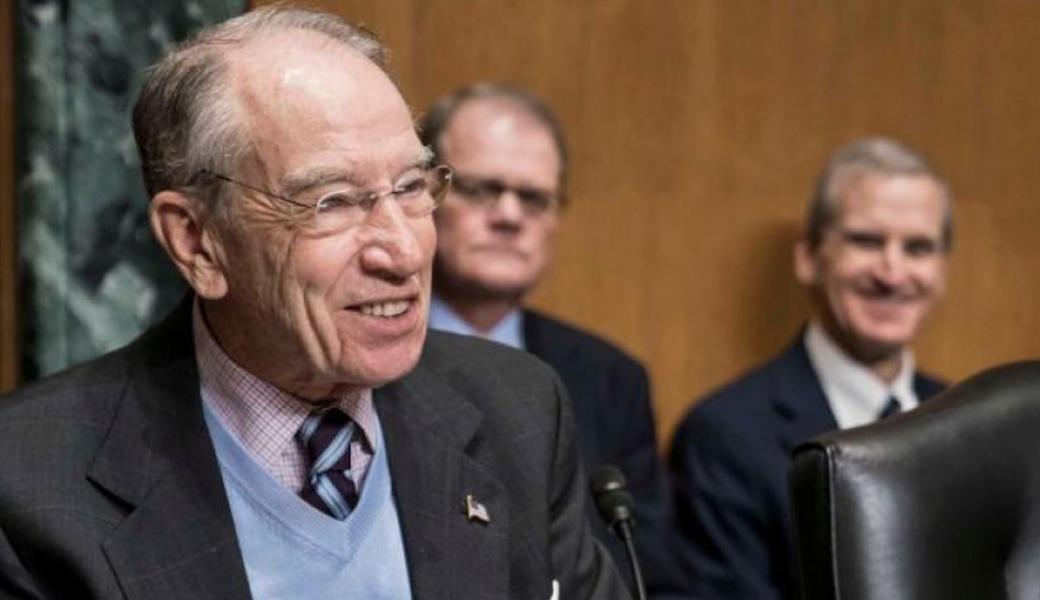Q&A With Senator Chuck Grassley On The Great American Outdoors Act

Since the U.S. Senate took significant action to address campground modernization and deferred maintenance on public lands with the passage of the Great American Outdoors Act by a vote of 73-25 on June 17, the bill now sits with the House of Representatives for approval.
Senator Chuck Grassley (R-IA), a member of the Senate RV Caucus that examines legislative and regulatory issues important to outdoor recreation and travel, collaborated with Medium for a brief Q&A on the Great American Outdoors Act where he discusses this historic law and how it will protect treasured spaces and places in every state in the nation for people of all ages to enjoy for years to come.
Q: What is the Great American Outdoors Act?
A: Last year, Congress permanently reauthorized the Land and Water Conservation Fund (LWCF), ensuring a federal commitment to conservation, habitat protection, water quality and access to outdoor recreation. The 56-year-old federal law provides funds to federal land management agencies and matching grants to the states to help boost outdoor recreational opportunities in local communities, conserve natural resources and implement stewardship practices to mitigate natural disasters. President Trump in March announced he would sign permanent funding legislation and asked Congress to deliver a bill to his desk. The Great American Outdoors Act fully and permanently funds the LWCF and ensures it would receive $900 million annually with revenue from oil and gas royalties. Enacting this historic law will protect treasured spaces and places in every state in the nation for people of all ages to enjoy for years to come. Sen. Joni Ernst and I joined an overwhelming bipartisan coalition to secure passage in the U.S. Senate.
Q: How will this federal conservation law impact Iowa?
A: The Great American Outdoors Act also establishes the National Parks and Public Land Legacy Restoration Fund to support up to $1.9 billion for deferred maintenance projects and critical repairs on public lands over each of the next five years. Here in Iowa, that means popular federal land attractions in our state can tap a dedicated stream of money to upgrade infrastructure, public access and trails and maintain historic sites to safely welcome visitors and grow the outdoor recreation economy.
One estimate by the Pew Charitable Trusts calculates deferred maintenance costs for the two National Park sites located in Iowa added up to $5.5 million in 2018. That total includes $3.2 million for the Herbert Hoover National Historic Site in West Branch and $2.3 million for the Effigy Mounds National Monument in Harpers Ferry. In the last half-century, Iowa also has received nearly $80 million from the LWCF to support areas within the network of the National Wildlife Refuge. Locations in Iowa include the Driftless Area National Wildlife Refuge in Elkader; the Upper Mississippi River National Wildlife and Fish Refuge spanning six Iowa counties along the Mississippi River; the Neal Smith National Wildlife Refuge in Prairie City; Desoto National Wildlife Refuge in Missouri Valley; Union Slough National Wildlife Refuge in Titonka; and, Port Louisa National Wildlife Refuge in Wapello. These public areas invite generations of Iowans to enjoy a rich heritage of outdoor recreational activities across diverse ecosystems, from boating to fishing, swimming, hunting, hiking, camping, snowmobiling, wildlife photography and more. They also bring in valuable tourism dollars that create jobs in our local economies. Conserving Iowa’s precious natural resources not only preserves history and wildlife habitats for generations to come, it also encourages outdoor recreation that generates substantial economic activity across the state. By some estimates, the outdoor recreation industry in Iowa fosters $8.7 billion in consumer spending, supports 83,000 Iowa jobs and contributes $2.7 billion to Iowans’ paychecks.
Iowans have spent extra time at home during the pandemic, many families may be looking for opportunities to take a road trip and enjoy the great outdoors. Plan a visit to one of our state’s treasured spaces and enjoy scenic wooded bluffs, hardwood forests and rolling prairies. Iowa offers countless ways to enjoy outdoor recreation close to home. After the turn of the last century, President Theodore Roosevelt laid the cornerstone of a conservation legacy to preserve the shared heritage of America’s precious resources. The Great American Outdoors Act cements this covenant to preserve America’s landscapes, waterways and quality of life for posterity.
Photo credit: Sarah Silbiger/Getty Images
Please Sign in to View
Log in to view member-only content.
If you believe you are receiving this message in error contact us at memberservices@rvia.org.

